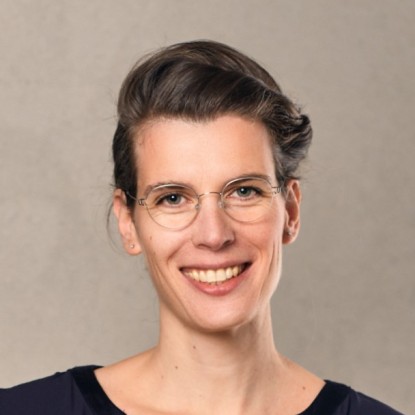Campus and Code: TU Darmstadt's Easter Camp introduces girls to computer science
2025/04/23 by Valentina Röther, DFKI
The Easter camp organised by the Department of Computer Science at TU Darmstadt and DFKI makes it possible to get to know computer science in a fun way. And it helps to break down prejudices. From 8 to 11 April, girls in the 5th and 6th grades had the opportunity to get to know the university and computer science in various workshops during the Easter holidays.

According to the Federal Statistical Office, the proportion of women working in computer science was 14 per cent in 2013. Ten years later, the figure is almost 18 percent. Behind this positive development is the commitment of many people to make computer science more diverse. For example, through targeted programmes to get girls and young women interested in computing from an early age. The Easter camp at the TU Darmstadt, organised by DFKI and the Department of Computer Science at the TU Darmstadt, is one such offer: it is aimed at schoolgirls who are curious, have questions and can imagine going their own way in the digital world – or who simply want to gain a first impression.
Once again this year, 30 girls had the opportunity to spend four days on the campus of TU Darmstadt. Various workshops introduced the participants to the variety of computer science. In the cryptography workshop, the students learned about different encryption methods and cracked a treasure chest with their newly acquired knowledge of Ceasar and Vigenère encryption. The Fake News workshop put their media skills to the test – how can you spot fake news? And what tricks are used to deceive others? Things got creative in the Generative Art workshop. Using the JavaScript library p5.js, students were able to create works of art using smileys, shapes and colours – and do some real coding for the first time. A cosplay workshop was all about digital design, including the use of a 3D printer. The robotics workshop allowed participants to build and program their own Lego robots. Photon robots were also programmed by the children.
There was not only a lot to learn, but also a lot to discover: a campus rally introduced the children to the university cosmos. And various excursions gave them the opportunity to discover the many facets of science. For example, they met robots in the lab of the Intelligent Autonomous Systems research area and experienced virtual reality at the Centre for Cognitive Science.
At the end of the week, the results of the workshops were presented to the parents in the presence of many proud participants. “I found it interesting that so many women were and are involved in Computer Science,” was just one of the many positive feedbacks. This gives us hope that this Easter camp has also contributed to making computing more accessible and diverse.


